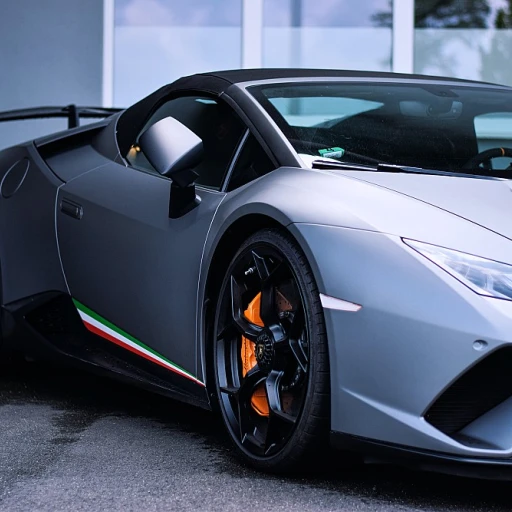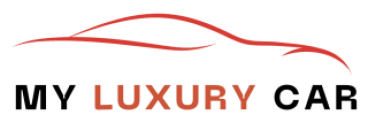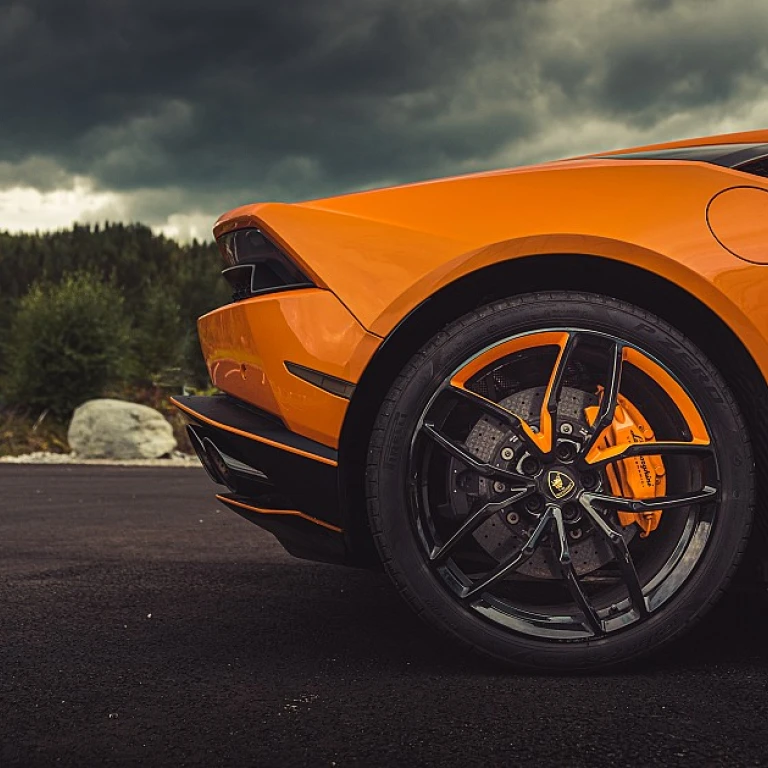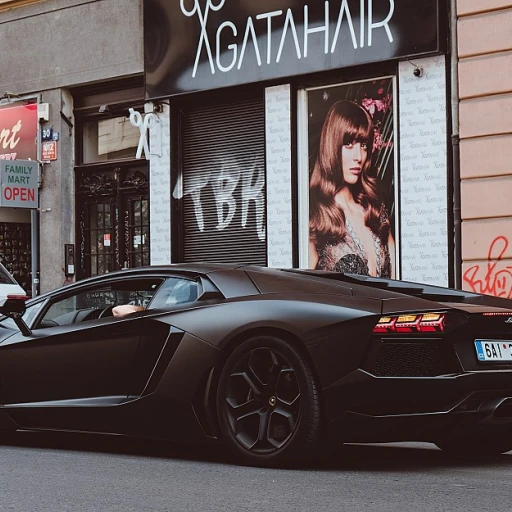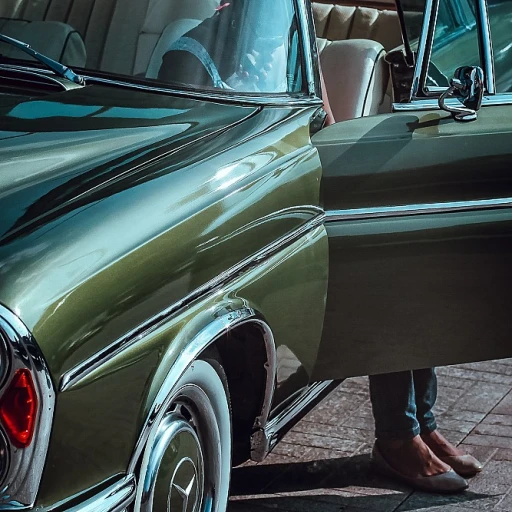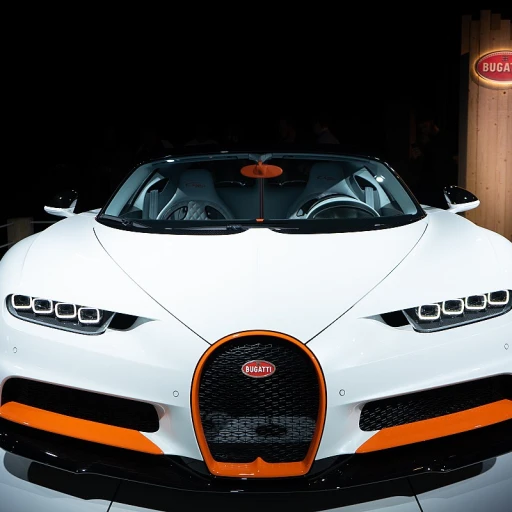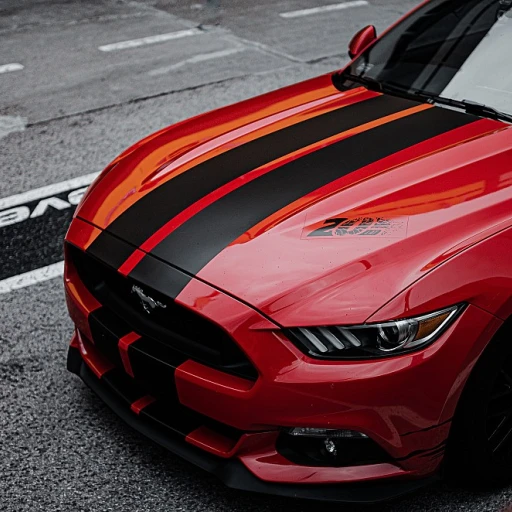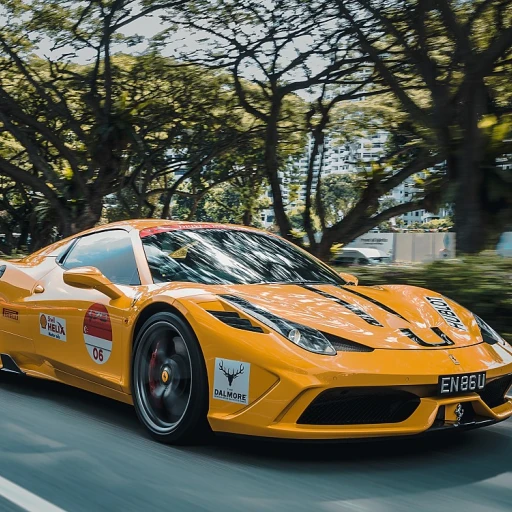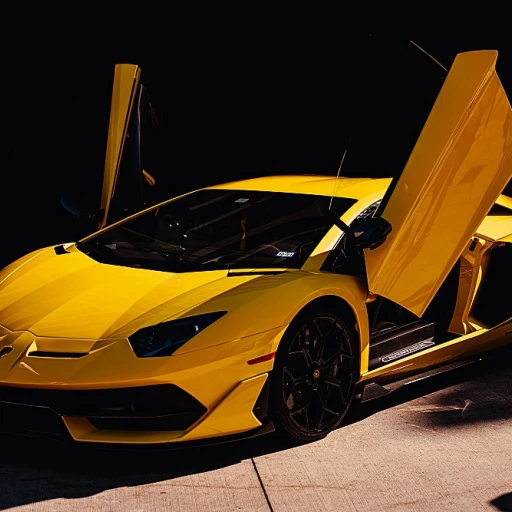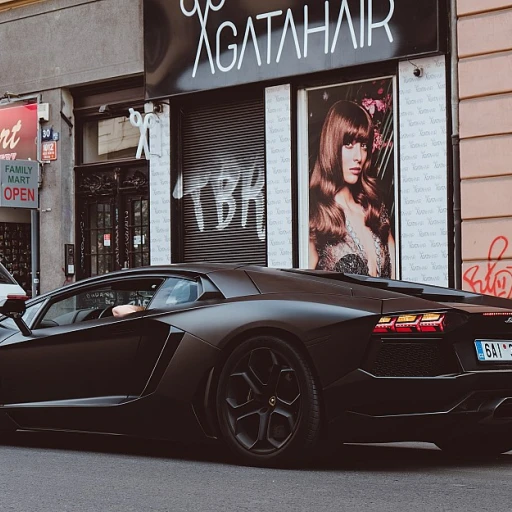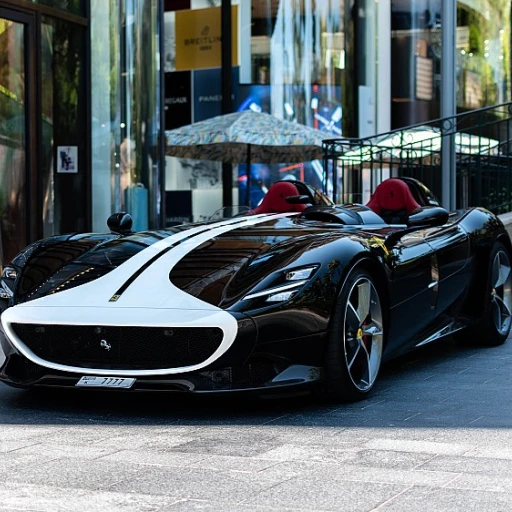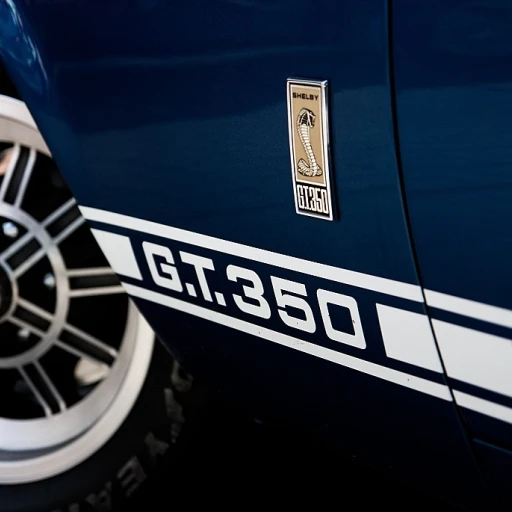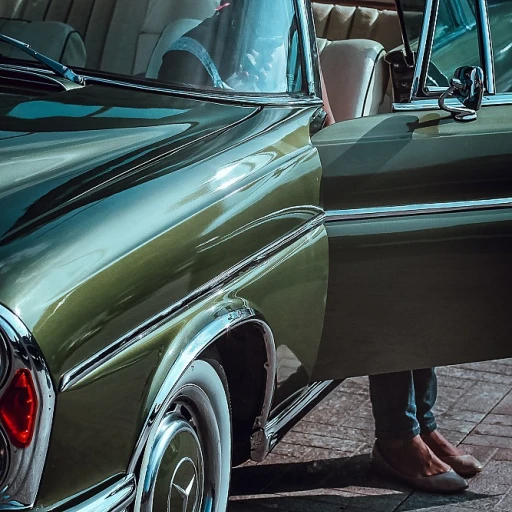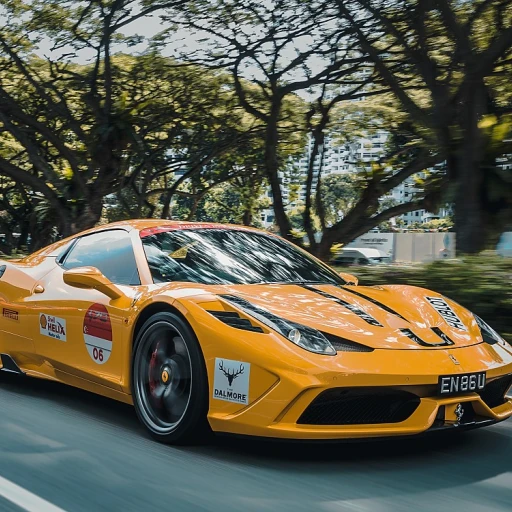Design and Aesthetics
Design and Visual Impact
The visual allure of luxury vehicles often sets the stage for their real-world presence, and in the grand showdown between the Range Rover and the G-Wagon, it's a spectacle in design. The Range Rover captivates with its elegant, aerodynamic profile, maintaining the classic refinement that the Land Rover brand is acclaimed for. Its sleek lines and contemporary side mirrors give it an edge, offering not just aesthetics but functional advantages like improved fuel economy and lane keep assist systems.
Meanwhile, the Mercedes-Benz G-Class or G-Wagon retains its iconic, boxy design that has charmed enthusiasts for decades. The almost military-like exterior and robust silhouette speak volumes about its rugged capabilities. While the simplistic shape may seem outdated to some, the commanding presence is unquestionable. With features such as distinctive LED headlights and bold front grilles, the G-Wagon exudes a sense of untamed power that is tangible before even opening the doors.
Both models sport a meticulous attention to detail, with the Range Rover showcasing seamless integration of its rear end and a standard panoramic roof that bathes the interior in natural light. On the other hand, the G-Wagon prides itself on supreme finishings that resonate with the Mercedes-Benz luxury ethos, with every angle carefully sculpted to assert dominance on the road.
For those who find themselves leaning towards regal elegance combined with modern technology, exploring the Range Rover Sport SV Edition Two is indeed worthwhile
unveiling luxurious allure.
Performance Under the Hood
When it comes to performance and capability, both the Range Rover and G-Wagon offer a unique driving experience, thanks to their powerful engines and advanced features designed for both urban streets and rugged terrains. Unlike standard SUVs, these vehicles prioritize power and precision, ensuring a superior drive.
The Range Rover, synonymous with luxury and off-road prowess, comes equipped with a variety of engine options that cater to diverse preferences. The vehicle's air suspension and all-wheel drive systems enhance comfort and control, ensuring a smoothed out experience, whether on a bumpy trail or a smooth highway. This alluring design enables impressive off-road capabilities matched with a sophisticated ride on city roads.
On the other hand, the Mercedes-Benz G-Class, often known as the G-Wagon, maintains its reputation with a robust engine that can tackle the most challenging conditions while providing a comfortable interior ride. The distinct boxy silhouette houses a beastly engine, making use of its ladder-frame construction to excel in both performance and durability.
Both models feature advanced technology such as lane keep assist and adaptive cruise control to enhance the driving experience and safety. The Range Rover leads with its capability for unparalleled off-road adventure, while the G-Wagon offers a more rugged and powerful feel, often preferred for its classic charm and prestige.
Deciding between these two giants often boils down to personal preference and what the driver seeks most: the off-road supremacy of a Land Rover or the timeless appeal of a Mercedes-Benz.
Technology and Features
Innovative Technology and Features
When it comes to technology and features, both the Range Rover and the G-Wagon offer a suite of advanced systems that cater to the luxury car enthusiast. Each vehicle is equipped with state-of-the-art technology, but they approach it with their own unique flair.
The Range Rover is renowned for its seamless integration of technology and comfort. It boasts a dual-screen infotainment system that provides easy access to navigation, entertainment, and vehicle settings. The keyless entry and start system, along with adaptive cruise control, ensures a smooth driving experience. The land rover also features a blind spot monitoring system and lane keep assist to enhance safety.
On the other hand, the Mercedes-Benz G-Class offers a more traditional yet equally impressive technological package. The mercedes benz is equipped with a high-resolution view camera and a steering wheel with touch-sensitive controls, allowing drivers to manage the infotainment system without taking their hands off the wheel. The benz class also includes a rear seat entertainment system, ensuring passengers in the second row enjoy the ride as much as those in the front.
Both vehicles provide climate control systems that maintain optimal comfort, regardless of the weather outside. The rover range takes it a step further with its four-zone climate control, allowing each passenger to set their preferred temperature. Meanwhile, the G-Wagon's air suspension system ensures a smooth ride over any terrain.
In terms of connectivity, both models offer smartphone integration, but the range rover stands out with its auto updates for the infotainment system, ensuring the latest features are always available. The G-Wagon, however, offers a more robust side mirrors system with integrated cameras for enhanced visibility.
Ultimately, the choice between these two luxury SUVs may come down to personal preference in technology and features. Whether you prioritize the cutting-edge systems of the land rover or the classic elegance of the mercedes benz, both vehicles promise a top-tier driving experience.
Safety and Reliability
Safety Features and Reliability Ratings
In the realm of luxury vehicles, safety often takes precedence, ensuring that owners experience peace of mind alongside indulgence. The Range Rover and the Mercedes-Benz G-Class deliver comprehensive safety features, using technology to boost overall security.
The Range Rover is equipped with cutting-edge driver-assistance systems like adaptive cruise control, lane keep assist, and a robust blind spot monitor. These features work seamlessly with its standard air suspension and climate control, ensuring a smooth drive that is not only powerful but also mindful of surroundings. The integration of a 360-degree camera, side mirrors with auto-dimming capabilities, and advanced front and rear proximity sensors further elevate its safety profile.
Over in the Mercedes-Benz camp, the G-Wagon shines with similar prowess. This model includes automated emergency braking, a high-performance traction control system, and advanced lane keep systems. Its strong build and the inclusion of keyless entry and enhanced climate control for those in the second row are engineered to provide both safety and comfort.
Reliability is another factor that weighs heavy on a potential buyer’s mind. While the Land Rover Range Rover consistently showcases improvements in terms of reliability, Mercedes-Benz has long been celebrated for its robust build and unwavering durability. The extensive network of service centers for both brands ensures backup support that can handle unexpected repairs or the general upkeep of these high-class vehicles.
Choosing between these two echoes a decision not just around luxury, but also long-term trust in performance and safety. As always with luxury class purchases, reading comprehensive reviews and familiarizing oneself with independently conducted reliability reports is recommended for an informed decision.
Market Position and Brand Prestige
Prestige and Market Dynamics
In the world of luxury cars, the market position and brand prestige of the Range Rover and G-Wagon notably set the stage for future trends. The Rover Range, specifically the Range Rover, is synonymous with a blend of upscale luxury and rugged land capability, maintaining a revered position within both the automotive industry and among connoisseurs. Meanwhile, the Mercedes Benz G-Class, often referred to as the G-Wagon, boasts a unique legacy with its iconic square frame—a symbol of uncompromising strength and class lineage.
The market share dynamics for the Range Rover and the G-Wagon reveal nuanced preferences among sophisticated buyers. Both models command significant loyalty, though the Mercedes Benz G-Class tends to captivate those seeking a marriage of opulence with dynamic road presence. Its prestige is bolstered by its presence as a status symbol that transcends traditional utility, appealing to the aspirational aspects of luxury car ownership.
Conversely, the Range Rover has carved out its niche by combining exceptional off-road prowess with top-tier elegance—making it a cherished choice for those who appreciate refinement paired with robust land and drive capability. The brand's emphasis on innovation and sophistication is evident in its approach to design and engineering, as discussed in earlier sections.
Both vehicles offer signature features like blind spot monitoring, keyless entry, and advanced climate control systems, ensuring that they stay ahead in the increasingly competitive luxury SUV market. Their market positions are consolidated by a strong ethos of continuous development, integrating cutting-edge technology while retaining their distinct brand essence.
In the broader context of luxury vehicles, these models' market standings not only reflect their engineering superiority but also their cultural influence. As the luxury automotive market evolves, maintaining this unique blend of prestige and performance remains pivotal for both brands, solidifying their legacies for future generations of car enthusiasts.
Whether one leans towards the Range Rover's balance of elegance and ruggedness or the Mercedes Benz G-Wagon's fusion of power and opulence, the decision often comes down to personal brand affinity and lifestyle alignment.
Ownership Experience and Cost of Maintenance
Luxury Ownership Journey and Maintenance Costs
Owning a Range Rover or G-Wagon is undoubtedly a declaration of prestige but comes with its own set of responsibilities. Each brand bears its own signature, leaving an impression not just in design and performance but in the ownership experience.
While both the Range Rover and the G-Wagon offer a luxurious drive, the maintenance costs between the two can vary significantly. The Range Rover, by Land Rover, is often noted for its sophisticated technology and plush interior, often enriched with leather seats and state-of-the-art climate control. This luxury comes at a cost, with regular maintenance being essential to keep the famed air suspension and smart systems like the lane keep assist functioning smoothly.
On the other side, Mercedes Benz’s G-Class or G-Wagon stands as a robust symbol of off-road proficiency and unmatched power. Maintaining a G-Wagon ensures the longevity of its multi-functional steering wheel, advanced drive capabilities, and powerful engine. However, its maintenance costs echo its stature—a reality for those who cherish the Mercedes Benz's legacy.
Comparatively, the G-Wagon may have a higher maintenance burden, especially due to its more complex engine systems and a focus on modest fuel economy. Meanwhile, the Range Rover's servicing often revolves around ensuring the seamless operation of its heightened technology features, from the view camera to the blind spot monitoring system.
Both vehicles are equipped with standard features like keyless entry, cruise control, and rear and front parking sensors, which need periodic checks as part of their maintenance plans.
It's crucial to factor in these aspects when deciding which luxury SUV aligns with your lifestyle and financial planning, ensuring that your experience of owning a luxury car is as seamless and satisfying as the drive itself.
